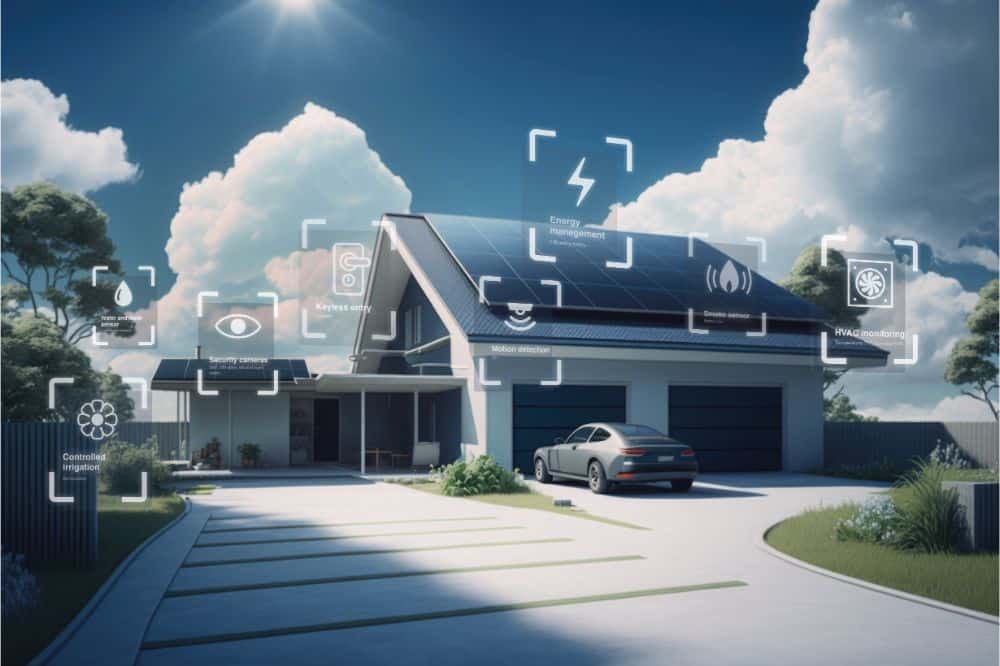A driveway alarm is a convenient and effective security device that helps protect your home and property. These devices can provide you with an extra layer of protection by alerting you when someone enters your driveway or approaches your home. With a variety of types to choose from and several ways they can work, you’ll be able to find the right driveway alarm system that best fits your specific needs and preferences. In this article, we’ll cover the purpose, different types, installation, and what to consider when choosing the perfect system for your property.
Table of Contents
Driveway alarms serve various purposes, catering to the needs of homeowners and businesses alike. One of the primary reasons they are installed is for added security, triggering alerts when vehicles or people enter the property. This can help deter potential intruders or simply notify the property owner of an expected guest’s arrival. Driveway alarms can also be used for safety, ensuring that people, pets, and vehicles are aware of each other’s presence to avoid accidents. Additionally, these alarms can provide a sense of independence for homeowners, giving them the freedom to monitor their property without constant supervision, even when they’re not nearby.
Types of Driveway Alarms
There are various types of driveway alarms available in the market, each utilizing different technologies to detect vehicles or individuals entering your property. These include wired and wireless alarms, infrared motion detectors, magnetic probe alarms, and pneumatic hose alarms. Wired alarms rely on a physical connection between the sensor and the receiver, while wireless models use radio signals for communication. Infrared motion detectors identify changes in temperature and movement within their range, whereas magnetic probe alarms sense the presence of large metal objects. Pneumatic hose alarms, on the other hand, detect pressure changes caused by vehicles passing over a hose laid across the driveway. The choice of system depends on the specific needs and preferences of the homeowner.
Wired and Wireless Driveway Alarms
Wired driveway alarms are connected directly to a main control panel and receiver through physical wiring. Though the installation may be more complex, wired alarms often provide improved signal strength and reliability compared to their wireless counterparts, ensuring consistent and timely alerts.
Wireless driveway alarms offer a hassle-free and flexible option for homeowners. They operate by connecting a Wi-Fi-enabled sensor to a receiver inside your home, eliminating the need for any wiring. These alarms are typically battery-powered, which adds convenience in terms of installation and maintenance.
Infrared Motion Detectors
Infrared motion detectors are another popular option for driveway alarms. These devices use passive infrared (PIR) sensors to detect heat and movement within their field of view. When a vehicle or person enters the area, the temperature change triggers the sensor, which then sends a signal to the receiver unit. Since these detectors don’t rely on any physical contact, they can be easily installed and are less prone to false alarms. However, they may not detect vehicles or people moving very slowly or those with a temperature similar to the background environment.
Magnetic Probe Driveway Alarms
Magnetic probe driveway alarms utilize an electromagnetic field sensor to detect vehicles. Typically buried next to the driveway, these probes only detect changes in magnetic fields caused by the movement of large metal objects, such as cars or trucks. As a result, these alarms are perfect for avoiding false alarms triggered by animals or people. Once the magnetic probe detects a vehicle, it sends a signal to the receiver, alerting the homeowner. The magnetic probe’s inconspicuous design ensures a discreet yet effective driveway security system.
Pneumatic Hose Driveway Alarms
Pneumatic hose driveway alarms consist of a rubber hose stretched across the length of a driveway. When a vehicle drives over the hose, air pressure within the hose increases, activating a switch connected to the alarm system. These alarms are particularly useful for monitoring vehicular traffic as they are not triggered by people, animals, or other small objects. This type of alarm is commonly found at gas stations, service centers, or places where monitoring vehicle movement is essential.
How Driveway Alarms Work
So, how do driveway alarms actually work? Regardless of the specific type, the basic principle remains consistent: when motion or presence is detected within the designated area, a signal is transmitted to a receiver, usually located inside your home or office, which then triggers an audible or visual alert.
Infrared motion detectors, for example, rely on a sensor that detects changes in heat patterns caused by moving objects such as vehicles or people. If something enters the monitored area and breaks the infrared beam, the sensor registers the disruption and sends a signal to the receiver to alert you of the activity.
A magnetic probe driveway alarm, on the other hand, works by detecting changes in the earth’s magnetic field caused by a large metal object’s presence, such as a vehicle. When a vehicle approaches, the magnetic probe senses the disturbance and transmits a signal to the receiver, alerting you of a potential arrival or departure.
Pneumatic hose driveway alarms, commonly seen at gas stations, utilize a rubber hose placed across the entrance of your driveway. When a car pulls in or drives past, the weight of the vehicle compresses the hose, which sends a burst of air that triggers an electrical switch, sending a signal to the receiver and activating the alert.
Regardless of the specific technology used, driveway alarms provide a reliable means to monitor your property and alert you to any unexpected activity. With such a wide range of options to choose from, you can easily find the perfect driveway alarm to suit your specific needs, ensuring you have the information you need to keep your home or business safe and secure.

Motion Detection and Sensors
The core functionality of driveway alarms is their ability to detect motion using various sensor technologies. Infrared motion detectors sense changes in heat, while magnetic probe alarms detect vehicles thanks to their metal. Pneumatic hose alarms, on the other hand, use air pressure changes from weight to identify a vehicle. These sensors are positioned in strategic locations around your driveway to ensure optimal performance. When motion is detected, these sensors then send a signal to a receiver, alerting you about the activity. It’s essential to understand the technology behind these sensors to choose the driveway alarm that best suits your needs and ensures the required level of security for your property.
Signal Transmission and Reception
In the driveway alarm system, signal transmission and reception play a crucial role in ensuring you get timely notifications. Once the sensor detects motion or any disturbance, it sends a signal to the receiver, which is usually placed inside your home or office. The transmission technology varies based on the system you choose. Wired alarms use physical cables for signal transmission, while wireless alarms rely on radio frequency (RF) or Wi-Fi signals. Most wireless driveway alarms have a specific range, typically between 300 to 1000 feet, determining the maximum distance between the sensor and receiver for effective communication.
Alert Notifications
Upon detecting motion or sensing a vehicle, your driveway alarm system sends an immediate alert notification to the connected devices, such as a base station, smartphone app, or portable receiver. These notifications can come in various forms, such as audible alarms, visual indicators (like flashing lights), or push notifications sent directly to your phone. This way, you’ll know instantly if someone is entering or leaving your property, allowing you to take appropriate action if necessary.
Installation and Setup
Installing and setting up a driveway alarm is typically straightforward, making it a convenient and hassle-free security addition. For wired alarms, the process starts with burying wires underground and connecting the sensors to the control panel. It’s essential to carefully plan the wiring layout and the location of the sensors to avoid future disruption.
On the other hand, wireless driveway alarms are relatively easier to set up as they don’t require any buried wires. When installing these alarm types, it’s crucial to consider the signal range between the sensor and the receiver to ensure optimal performance.
For both wired and wireless systems, test the sensors for any interruptions in receiving signals before installing them permanently. Always consult the manufacturer’s guidelines during installation for the best possible results and consider professional assistance if needed.
Choosing the Right Driveway Alarm
When choosing the right driveway alarm for your needs, consider factors like the size of your property, the type of sensor you prefer, ease of installation, and the form of alert you find most convenient. Think about whether you require a wired or wireless system, and take into account the possible need for expandability or integration with other security components. Identify your specific needs, such as protecting certain areas or detecting specific types of movement. Research and compare various brands and models, taking note of reviews and recommendations. By assessing these factors, you’ll be able to make an informed decision and choose a driveway alarm that suits your requirements.
Conclusion
In conclusion, driveway alarms offer a simple yet effective way to enhance your property’s security. By selecting the best type for your needs and properly installing it, you’ll gain valuable peace of mind.

